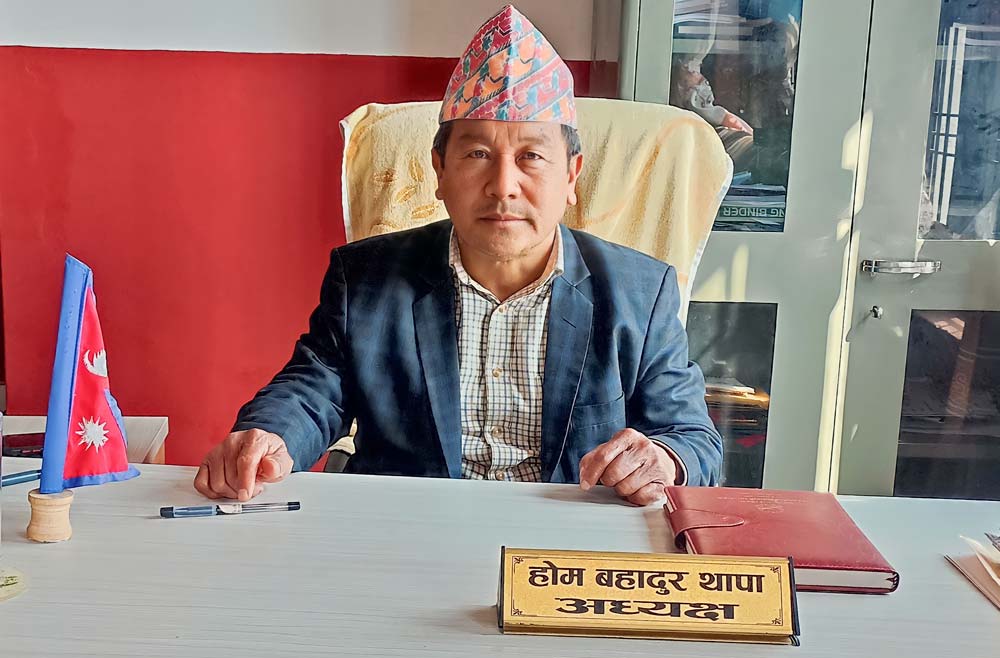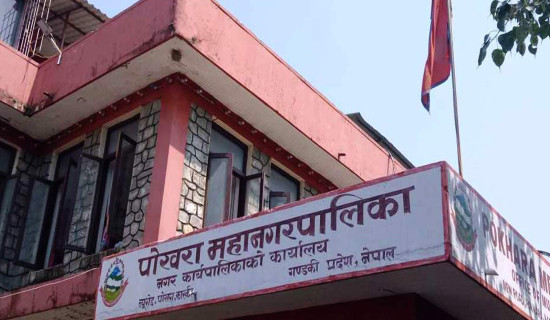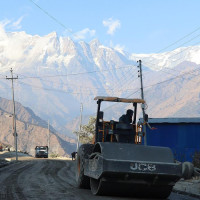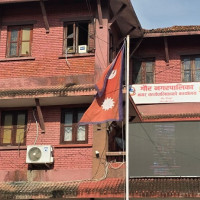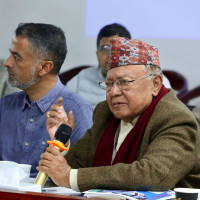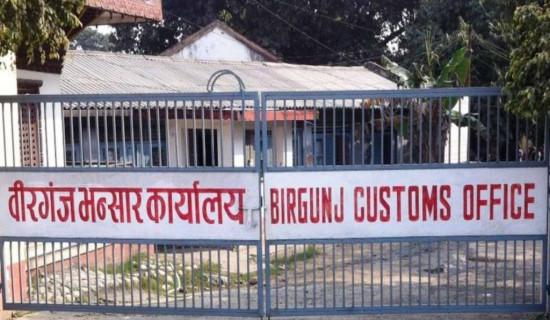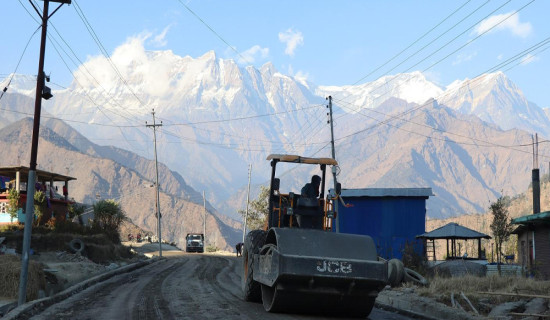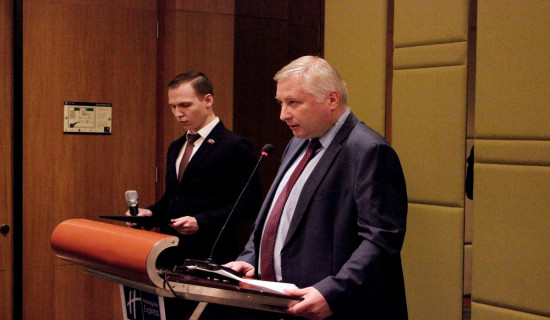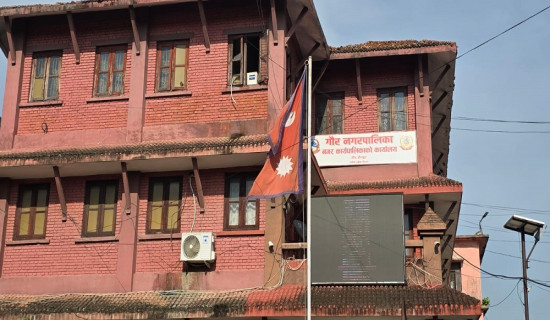- Tuesday, 23 December 2025
'Youth employment is our first priority'
Ghiring Rural Municipality, known as the Karnali of Tanahun district, has great agriculture potential due to the Kaligandaki River touching many parts of the area. Additionally, the Atrauli-Puttar Irrigation Project, the largest in the district, is also located here.
With the implementation of federalism, the rural municipality has recently made significant strides in development. Our Tanahun correspondent Amar Raj Naharki recently talked to the rural municipality Chairman, Hom Bahadur Thapa, regarding its development.
What are the priorities of the rural municipality?
Our first priority is to create job opportunities, focusing on quality and technical education, so that youths do not need to seek foreign employment. Special initiatives have been taken to equip youths with skills, make them capable and steer them towards self-employment. We have prioritised agriculture, roads, education, tourism, health, drinking water, electricity, irrigation and good governance. We have implemented a production-based cash grant programme to attract young entrepreneurs to agriculture and animal husbandry.
What problems and challenges are you facing while working?
There are many public expectations, but it is difficult to meet them due to limited resources. Currently, there is a lack of public participation due to the lack of trust between the public and their representatives. However, it can be effective if the rural municipality allocates budgets for small projects and the federal and provincial governments for large projects. Unfortunately, the plans budgeted by the federal and provincial governments are small and fragmented, resulting in low returns.
The construction of Krishna Motorway connecting Palpa, Nawalparasi and Syangja awarded by the District Development Committee in 1996 could not proceed due to legal hassles against the contract company Shantoshi Nirman Sewa and its proprietor Keshab Kandel. Work has been hindered by prejudices of those in government leadership. The lack of quality education, health services and road access has made it difficult to reduce migration. Our internal revenue has also been affected. Due to the Supreme Court's stay order on the Kaligandaki, we could not operate the cremation site, resulting in a significant decline in internal income.
Ghiring is known as the Karnali of Tanahun. What steps have been taken to develop it and change its identity?
We have urged the provincial and federal governments for the upgrading of roads and health posts. We have conducted skill-based and self-employment training. We have provided grants to encourage farmers. We have emphasised tourism management and focused on improving roads, education and health. The "one house, one tap" project is 70 per cent complete. Electrification has reached 97 per cent. We are expanding and improving the road network. We have arranged for free electricity for lift drinking water projects. After being elected, we have listed major and prestigious plans of the rural municipality and are gradually moving forward with their implementation.
Have the people experienced better access to services?
The local government is the closest government to the citizens, so we have been conducting programmes to meet their expectations to the maximum extent. Fulfilling citizens' expectations amid limited resources is certainly a challenge for us. However, we have prioritised and advanced plans that need immediate attention. We have provided free ambulance services for post-partum women and given incentive allowances to an additional 200 post-partum women. We offer free application and photocopy services in the office.
What would you like to say in conclusion?
Since the local level elections in 2017, we have been committed to the grand campaign of building a happy and prosperous village for the residents of Ghiring. In the first year after the election, we were busy with internal discussions about the development status of the village. For the remaining period, we moved forward by setting policies, plans and programmes. We are mobilising all mechanisms of the rural municipality to implement the village's plans, prioritising the basic needs of citizens, such as education and health. Ensuring clean and safe drinking water is our priority. We plan to fully implement programmes such as encouraging farming on barren land within the village and distributing production-based grants. We hope the issue related to the road and the Kaligandaki will be resolved soon. We expect appropriate budget allocation from the federal and provincial governments for backward Ghiring.

